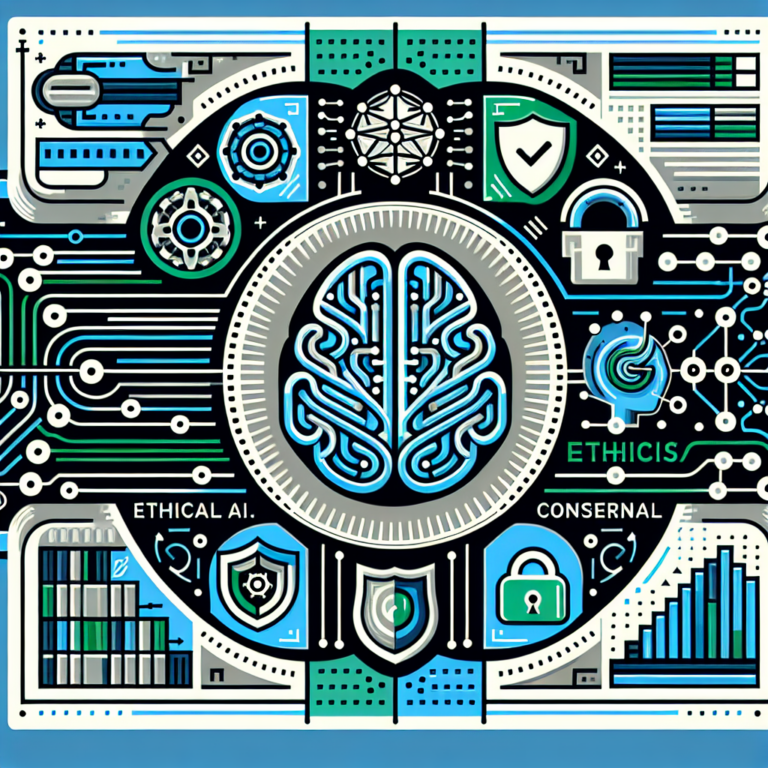Revolutionizing AI: Stable Diffusion Dataset Successfully Cleans CSAM Leakage
Introduction to LAION and Its Groundbreaking Dataset
In the rapidly evolving world of artificial intelligence, ensuring the integrity of datasets is paramount. The German research organization LAION, known for creating the data that fuels innovations like Stable Diffusion and other generative AI models, has unveiled a significant upgrade to its offerings. The newly released dataset, named Re-LAION-5B, claims to be thoroughly cleansed of known links to suspected child sexual abuse material (CSAM).
The Transformation of the LAION Dataset
The Re-LAION-5B dataset is a refined version of the previous LAION-5B dataset. LAION has implemented extensive fixes based on guidance from several esteemed organizations, including:
- Internet Watch Foundation
- Human Rights Watch
- Canadian Center for Child Protection
- Stanford Internet Observatory (now defunct)
This new dataset comes in two distinct versions:
- Re-LAION-5B Research: Aimed at researchers seeking valuable insights.
- Re-LAION-5B Research-Safe: This version further removes additional not-safe-for-work (NSFW) content.
Both variations have undergone extensive filtering to eliminate thousands of associations with known and suspected CSAM, reflecting LAION’s commitment to responsible AI development.
LAION’s Commitment to Ethical Data Practices
LAION emphasizes its dedication to removing illegal content from its datasets from the very beginning. In a recent blog post, the organization stated:
“LAION strictly adheres to the principle that illegal content is removed ASAP after it becomes known.”
It’s crucial to understand that LAION’s datasets consist of indexes of links to images and their respective alt texts rather than the images themselves. This data originates from a separate dataset, the Common Crawl, which aggregates data from various websites and web pages.
The Background of Previous Concerns
The release of Re-LAION-5B comes on the heels of an investigation conducted by the Stanford Internet Observatory in December 2023. The investigation revealed that the earlier LAION-5B dataset, particularly a subset known as LAION-5B 400M, contained at least 1,679 links to illegal images that had been scraped from social media and popular adult websites. The findings indicated that the 400M subset also included a variety of inappropriate content, such as:
- Pornographic imagery
- Racist slurs
- Harmful social stereotypes
Although the co-authors of the Stanford report acknowledged the challenge of eliminating the offending content, they also noted that the presence of CSAM might not directly affect the outputs of models trained on the dataset. Consequently, LAION decided to temporarily remove LAION-5B from circulation.
Recommendations and Responses to the Investigation
The Stanford report made recommendations that models based on LAION-5B should be deprecated, urging for a cease in distribution wherever feasible. This recommendation appears to have influenced AI startup Runway, which has removed its Stable Diffusion 1.5 model from the AI hosting platform Hugging Face. Runway previously collaborated with Stability AI, the entity behind Stable Diffusion, to develop the original model.
Details on the New Re-LAION-5B Dataset
The newly minted Re-LAION-5B dataset encompasses approximately 5.5 billion text-image pairs and is released under the Apache 2.0 license. Importantly, LAION assures that the associated metadata is available for third parties, enabling them to cleanse any existing copies of LAION-5B by removing matching illegal content.
LAION articulates its intention for its datasets to be used for research purposes only, differentiating them from commercial applications. Despite this declaration, previous trends suggest that some organizations may not adhere to this guidance. Notably, tech giant Google has previously leveraged LAION datasets to train its own image-generating models.
Encouraging Migration to the New Dataset
In its blog post, LAION highlighted its success in eliminating links to suspected CSAM. The organization reported:
“In all, 2,236 links [to suspected CSAM] were removed after matching with the lists of link and image hashes provided by our partners.”
This count includes 1,008 links identified in the Stanford Internet Observatory report from December 2023. LAION strongly urges all research labs and organizations still utilizing older versions of LAION-5B to migrate to the Re-LAION-5B dataset as soon as feasible.
Conclusion and Significance of Safe AI Datasets
The release of Re-LAION-5B represents a meaningful step in the ongoing efforts to ensure that AI models are trained on responsibly sourced data. As organizations continue to grapple with ethical implications in the world of technology, LAION’s proactive measures illustrate a commitment to safer and more responsible AI development.




0 Comments